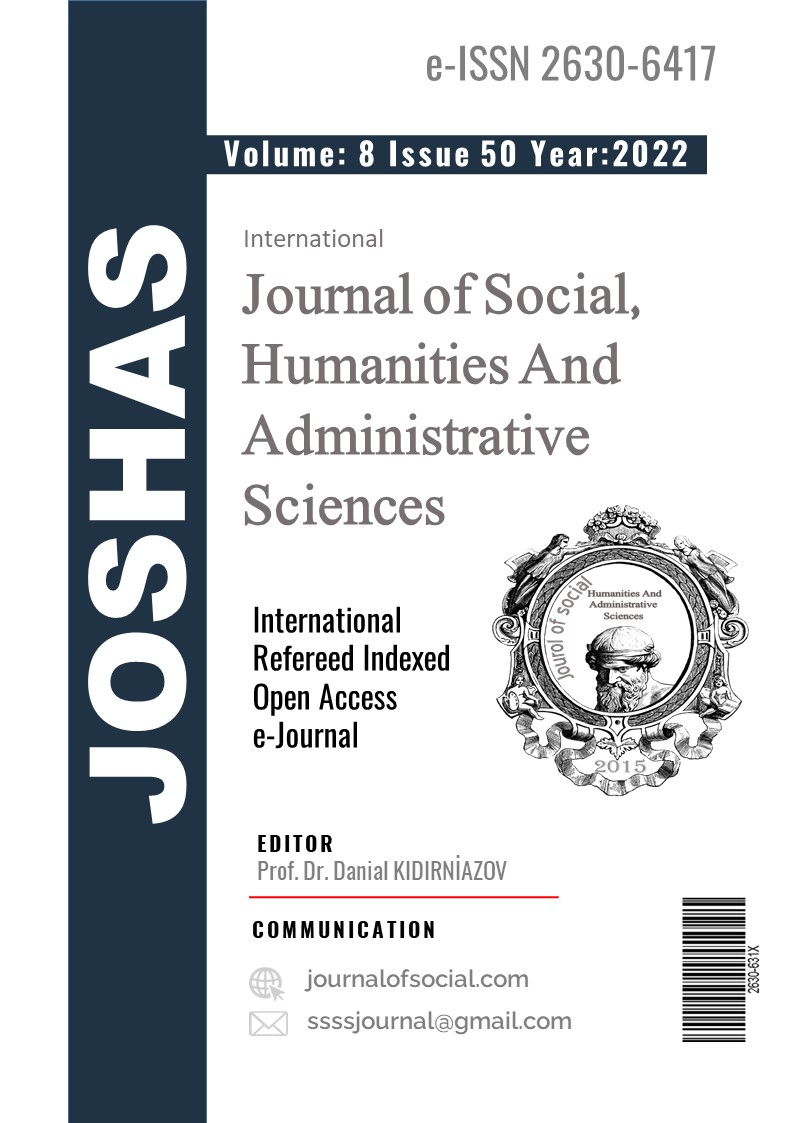Author :
Abstract
Batılı bir form olan romanın toplumla ilişkisi onu sosyolojik bir etüt alanına dönüştürürken roman incelemelerine de yeni bir soluk getirmiştir. Modern Mısır romanı bu kuramsal yapı çerçevesinde değerlendirildiğinde ilk örneklerinden itibaren konu edindiği dönemin sorunsallarına işaret ettiği görülür. Batılı değerlerin arka fonu oluşturduğu bu süreçte toplum nezdinde farkındalık kazanan bağımsızlık temasından hareketle “kadının özgürlüğü, modernite ve din” öncelikli konular arasına girmiştir. Aydınların çözüm önerileri arasında yer alan “dini, asli kaynaklarına döndürme” çabası Cemâleddîn Afgânî (1838-1897) ve Muhammed Abdûh’un (1849-905) sözlerinde ifade bulurken romanın da buna kayıtsız kalmadığı görülür. Dinde yozlaşma, tevessül ve tevekkül anlayışının tartışıldığı eserler arasında “şeyh” ve “itaat” olgusunu eleştirel bir yaklaşımla ortaya koyan Tâhâ Hüseyin’in Şeceratu’l-Bû’s (Hüzün Ağacı, 1944) adlı romanı Mısır’da değişim rüzgârlarının estiği bir süreçte itaat kültürünü sorgulaması açısından önemlidir. Roman, bir ailenin üç kuşak boyunca yaşamsal tecrübelerine odaklanırken Şeyh’in otoritesini ön plana çıkartır. Metinlerarasılık yönteminin ustaca kullanıldığı roman kadın, din ile otorite ve modernite bağlamında ele alınacak, bu sorunsallar çerçevesinde toplumsal yapı değerlendirilecektir.
Keywords
Abstract
The relationship of the novel, which is a western form, with society has transformed it into a sociological study area, and has brought a new breath to novel studies.When the modern Egyptian novel is evaluated within the framework of this theoretical structure, it is seen that it points to the problematics of the period in which it is the subject from its earliest examples. In this process, where western values formed the background, “women’s freedom, modernity and religion”, became primary issues, starting with the theme of independence which gained awareness in the society. While the effort to revert religion to its genesis, which is among the solution proposals of intellectuals, finds expression in the words of Cemaleddin Afgânî (1838-1897) and Muhammed Abduh (1849-905), it is seen that the novel does not remain indifferent to this. Taha Hüseyin’s novel “Tree of Misery” (Şeceratu’l-Bus 1944)”, which puts forward the phenomenon of “sheikh” and “obedience”, with a critical approach among other works in which the understanding of corruption, tawassul and tawakkul in religion is discussed, is substantial in terms of questioning the obedience culture in a period when the winds of change blew in Egypt. While the novel focuses on the life experiences of a family over three generations, it highlights the authority of the Sheikh. The novel, in which the intertextuality method is used skillfully, will be discussed in the context of woman, religion, authority and modernity, and the social structure will be evaluated within the framework of these problematics.
Keywords
- Çelenlioğlu, A. (2021). “Kadının Adı ‘Sâra’ Abbâs Mahmûd el-Akkâd’ın Sunumuyla”, TİDSAD, 2021(29): 29-38.
- Çelenlioğlu, A. (2021). “Kadının Adı ‘Sâra’ Abbâs Mahmûd el-Akkâd’ın Sunumuyla”, TİDSAD, 2021(29): 29-38.Çelenlioğlu, A. (2021). “Mahmûd Tâhir Lâşîn’in Havvâ Bilâ Âdem Romanına Yapısal ve Toplumsal Zeminde Eleştirel Bir Bakış”, SSS Journal, 2021(91):5303-5310.
- Dayf, Ş. (1961). el-Edebu’l-Arabiyyi’l-Muâsır fî Mısır, Dâru’l-Meârif, Kahire. El-Akkâd, A. (2006). Sâra, el-İdâretu’l-Amme li’l-Neşr, Kahire.
- El-Gitânî, C. (1980). Necîb Mahfûz Yetezekker, el-Heyetu’l-Mısriyyetu’l-Amme li’l-Kitab, Beyrut. El-Mâzinî, A. (2011). İbrâhîm el-Kâtib, Müessesetü’l-Hindâvî li’t-Ta’lîm ve’s-Sekâfe, Kahire.
- Hüseyin, T. (2014). Edîb, Müessesetü’l-Hindâvî li’t-Ta’lîm ve’s-Sekâfe, Kahire.
- Hüseyin, T. (1992). Eyyâm, Müessesetü’l-Ehrâm, Kahire.





